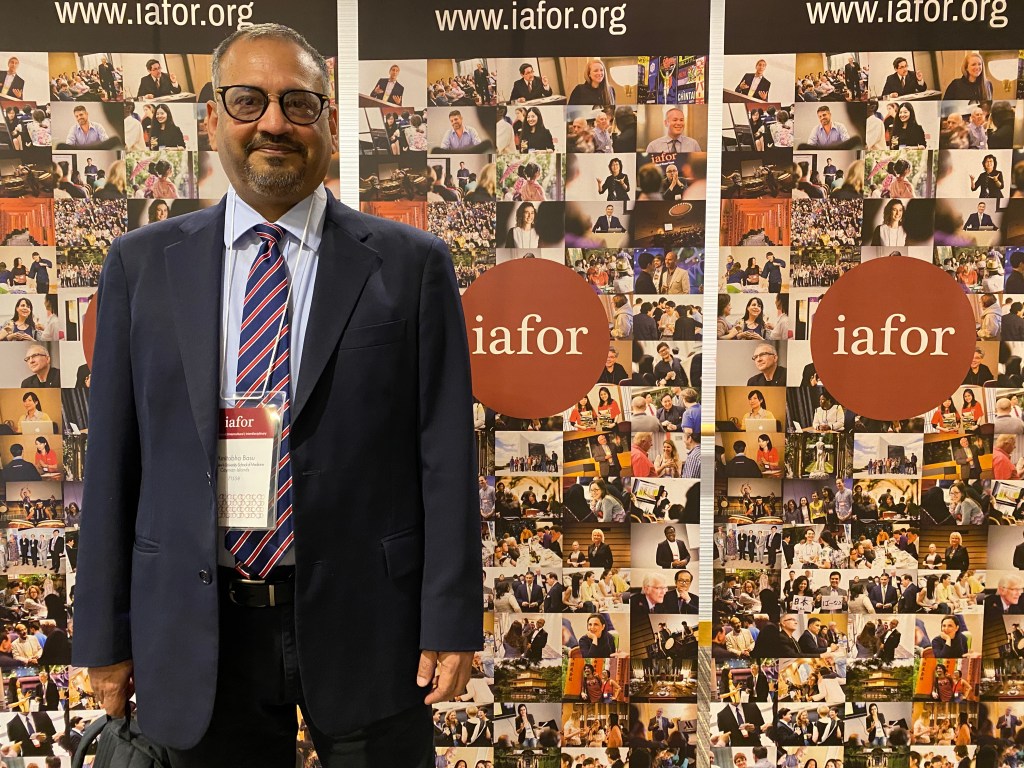
Advances in Trauma Informed Research in Medical Education
Dr. Basu champions advancing trauma-informed research in basic science education.
St. Matthew’s University Advances Trauma-Informed Research in Medical Education

As St. Matthew’s University dedicates efforts to enhancing accessibility to medical education globally, Dr. Amitabha Basu, Associate Dean of Basic Science, champions advancing trauma-informed research in basic science education.
As the head of the basic science program, Dr. Basu directly observes the influence of psychological trauma on students’ academic endeavors, encompassing issues like racial disparities, unplanned pregnancies, substance abuse, cancer, and mental health disorders. These traumas contribute significantly to health inequities within communities.
To address this challenge, Dr. Basu has collaborated with current St. Matthew’s medical student Aurianna Acloque to develop a framework for a trauma-informed curriculum and community within basic medical sciences programs.
Impacts of Psychological Trauma on Academic Performance
According to Dr. Basu, “The study advocates for the early integration of trauma-informed instruction into medical education to promote equity and mitigate the risk of re-traumatization. Titled ‘Exploring the Impact of Psychological Trauma on Academic Performance,’ the study comprises two phases. The first, a systematic review, aims to understand trauma definitions and identify best practices. The second involves qualitative research using semi-structured interviews to explore past psychological trauma’s impact on academic pursuits.
So far, the ongoing systematic review has yielded six findings, shedding light on historical, racial, conflict-related, and health-related considerations that can aid students in achieving their academic and professional aspirations. The conclusions identified include:
- Establishing safe, inclusive, and accommodating classroom environments.
- Educating educators about psychological trauma and its potential impact on medical students.
- Using contemporary evidence in case studies in medical school to transcend cultural stereotypes and biases embedded in instructional materials.
- Safeguarding against cultural stereotypes and prejudices in both classroom dynamics and posed questions.
- Fostering the development of self-regulation skills among students.
- Creating opportunities for collaboration and fostering student-peer-teacher partnerships.
Asian Conference on Education (ACE)
Dr. Basu presented the study’s findings and proposed framework at the 15th Asian Conference on Education (ACE) in Tokyo, positioning St. Matthew’s University School of Medicine as the only Caribbean-based medical school among 750 delegates from 65 countries.
Reflecting on his presentation, he emphasized, “Many educators are unfamiliar with the trauma-informed curricular concept despite acknowledging the hindrance posed by psychological trauma to education. I am pleased to have shared best practices for creating a safe school environment and look forward to continuing to build on the research.”
St. Matthew’s University – A Safe Learning Environment
The insights gained from the study are not confined to the conference; they are presently being integrated into St. Matthew’s basic sciences curriculum. This integration of a trauma-informed curriculum and community stands out as a distinguishing factor in the medical program at St. Matthew’s.
For example, when students join SMU’s campus on Grand Cayman, they benefit from classroom settings with appropriate temperature, lighting, neutral wall colors, drapes, and ample classroom space. In addition, faculty undergo training to adeptly identify and support students in distress.
The basic science curriculum also emphasizes a patient-centered approach. Medical students are equipped with skills that foster trust, honor patients’ trauma history, and actively involve them in care decisions.
The medical community at St. Matthew’s goes further by integrating student support services into its community, prioritizing students’ mental and emotional well-being. These programs provide resources for stress management and counseling services, cultivating a supportive community. Learn more about St. Matthew’s University School of Medicine’s research focus.